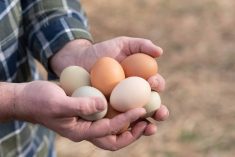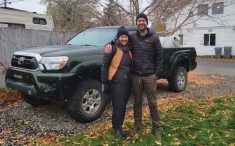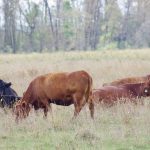In politics, we as farmers hope for a voice. We want our agricultural leaders to know what it’s like to run a farm; to get their hands dirty. We want our lawmakers to know that good policy comes from having one ear to the field and the other to the barn. And we want all of these people to listen to us.
I spent a day and a half at the Keystone Agricultural Producers AGM where I observed the power and and importance of grassroots political engagement.
Read Also

Avoid these thought traps when investing
Investing for Fun and Profit: Let’s review a list, by renowned fund manager Peter Lynch, of the most dangerous things that stock market investors can say to themselves, or to others.
Your fragile idea; your late-night eureka moment; that conviction you haven’t been able to shake; these are the beginnings of real politics. And making sure your voice is heard is how real change occurs.
- More with Toban Dyck: The other side of the trade show booth
- More with Toban Dyck: sometimes it all works out for the best
The moving parts clinking and clanging behind how policy gets developed, and now, specifically, ag policy, have always intrigued me. And I’d be willing to bet they would intrigue you, as well.
The mechanics of politics, and behind the apparatus that churns out the rules and regulations that affect our lives and business isn’t as formidable and inaccessible as you may think.
Rules can change. Laws can adapt. Focus can shift. Systems can topple.
As you may know, when I learn something new in this industry, I’m quick to impart those nuggets to you, the reader, trying my best to express it in such a way as to reenergize you on a topic that has long gone stale or to introduce you to something new, hoping some of my excitement passes on to you. I would like to think it has been working.
This column is more similar to a class on small engine repair than anything else. You start by taking the five-horse Briggs & Stratton apart, noting where each piece goes and what function it serves relative to the larger cause of converting the potential power stored inside fuel into actual, usable horsepower.
Then you rebuild it. You now know that motor. When it runs poorly, you can visualize the parts and which ones may be failing.
This particular farm organization has the ear of lawmakers. Many members of the Manitoba Legislative Assembly were present and available.
The meeting was what you’d expect from an AGM. There was housekeeping to get through. There were presentations on various farm related issues, from accounting to a study on the need for government support in agriculture.
But then there were resolutions.
Setting the policies
The conference room was on the second floor of the Delta and it was full. Delegates from KAP’s 12 districts across Manitoba were there. Industry delegates, such as myself, were also present. Others, too, including media and special guests.
I was given a package containing the agenda as well as all the resolutions that had been submitted in time prior to the meeting. The resolutions themselves came from the various districts and/or commodity groups, and addressed a wide swath of issues from carbon tax to hunting to rural internet service quality to you name it.
The resolution is read out loud, motioned and seconded. Then a member representing the resolutions speaks to it, fleshing out the details in order to bring all of us up to speed.
There were two mics setup, one on each side of the room. People could engage with each resolution, expressing concern, anger, support, or confusion. Many did, lining up behind each mic waiting for their turn to speak. The engagement was very real. For the most part, the things people had to say on these resolutions were interesting, and surprisingly accessible, as if you or I could have gone up and said the same thing.
It comes to a vote, and if the vote is in favour, KAP will add that resolution to its mandate. And once this happens — once that idea of yours finds itself approved at the KAP AGM — it has grown into something that will effect change.
All of this is meant to lift the veil on a mechanism many find intimidating. Politics is made up of those thoughts and ideas for change you feel are too simple or obvious to utter.
If you have something to say, and be confident that you do, become involved in the local groups that have an ear to government. Board members have become scarce in agriculture. The industry is scrambling to fill seats, and is worried about what their boards will look like five, seven, 10 years from now.
I left the Delta having learned something about what makes the ag world tick. But I also left the hotel inspired that there are systems in place giving each and every farmer a voice. The mic is on. All you have to do is walk up to it and start talking.














